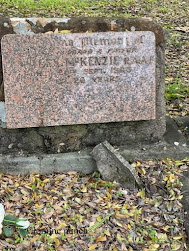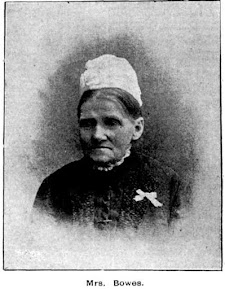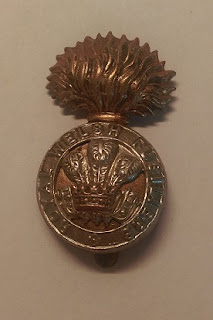Five headstones standing sentinel
When you see five headstones side by side with the same date of death, most carved with "accidently killed..." you go searching for information.
This was the case with a row
of headstones located near the Merchant Navy Memorial in the Anglican section
of Rookwood Necropolis.
Let me tell you the story
behind these headstones...
THE LORD HOWE ISLAND PLANE
CRASH 1948
But firstly.
Lord Howe Island is a crescent
shaped volcanic remnant in the Tasman Sea between Australia and New Zealand and
is part of the state of New South Wales. It is 780 kms northeast of Sydney, 600
kms east of Port Macquarie and 900 kms south of Norfolk Island. It is only 10k long
and only up to 2kms wide. Most of the small population, under 400, lives in the
Northern part and the South are dominated by forested hills rising to 875 metres
at their peak at Mount Gower. The area consists of 28 islands and rocks.
Its industries are in Kentia
Palm and Tourism; only up to 400 tourists are able to visit at a time in order
not to overwhelm the islands. (I like the sound of that!) The attraction is the
natural and dramatic beauty of the group, with hiking, bushwalking, fishing,
scuba diving and searching for its unique natural flora, native birds and
animals all making for a “back to nature” experience.
Lord Howe Island was first
discovered by Lieutenant Henry Ball, commander of the First Fleet ship, Supply,
in 1788, while en-route between Sydney cove and the penal colony of Norfolk
Island. He named the uninhabited island after British Admiral Richard Howe. The
island was first settled in 1834 when three couples arrived from New Zealand.
Later Lord Howe Island acted as a stop for ships travelling between Sydney and
Norfolk Island as well as for whaling ships. Whale Oil became Australia's most
profitable industry until the 1830's when sheep took over that mantle.
Unfortunately, the native fauna were easy to catch and most of the native birds
were driven to extinction. Pigs were let loose and became feral but became a
vital source of meat for the small population at the time. Eventually the
whaling industry came to an end and a source of income was found in kentia palm
seeds which really boomed in the 1880's.
From 1890 Burns Philp set up
a regular shipping line and a sideline in tourism took root. By the early
1930's tourism became the second largest source of external income after sales
of kentia palm to Europe.
The first plane arrived on
the island in 1931 piloted by Francis Chichester in a de Havilland Gipsy Moth
converted to a floatplane. After WW2 in 1947 tourists arrived on a Catalina and
then four engine Sandringham flying boats of Ansett Flying Boat Services
operating from Rose Bay Sydney began landing on the lagoon.
But this idyllic paradise came to a horrifying end when on the 28th of November
1948 a Catalina of 11 Squadron RAAF stationed in Newcastle crashed carrying a
complement of nine with seven dying almost instantaneously. Five of those air
personnel are buried in Rookwood.
The Catalina was on a
training mission from Rathmines on Lake Macquarie near Newcastle, NSW to seek
and shadow HMAS Australia which was acting as an "enemy" vessel. The
shadowing was to continue until 30 Squadron Beaufighters arrived to “attack”
the "enemy".
The rest of the mission was
scheduled to conduct a navigation exercise, which would mean flying from
daylight into the night to Lord Howe Island then returning to base at
Rathmines.
After the search for the
HMAS Australia was completed, the Catalina was flown to Lord Howe as directed
before heading west to Rathmines. At about twenty minutes into the flight, a leak
from one of the fuel tanks located within the wing behind the engine, was
detected. The wing is high mounted on a streamlined pedestal where the engineer
is seated. It is believed that the leak started above the engineer's position.
It was decided to attempt a touchdown on the lagoon at Lord Howe Island after dark. The plane was circling the Island at around 7.30pm but unfortunately the ridge below the North Peak was struck at about 182 metres while crossing the island east to west. Two men from a home near the crash site ran to the intensely burning plane where, before the ultimate explosion, they managed to drag two of the crew away. The men had been thrown out on fire, but the flames had been extinguished by their rescuers; one other was also thrown out but could not be saved. The others perished in a fast-igniting inferno; the only consolation was that their deaths came quickly
It was believed that the
crew of the Catalina did not put out a radio call for fear of igniting petrol
fumes by a chance spark from the radio transmitter. It is more likely that the
fumes were ignited by the friction caused by the crash.
The seven men buried side by
side at Rookwood are:-
F/Lt. Malcolm D. Smith
F/Lt. James Baker McCoy
F/Lt. William A.M.D. Keller
F/Lt. Alex McKenzie
Buried elsewhere -
Pilot 111 S. Piercy
W/O. D.E. Salis
Survivors
F/Lt. B.R. Bradley
W/O. J.D Lea
The deaths of the seven
personnel and the loss of the Catalina was the highest loss for the RAAF in
peacetime.
When Lord Howe Island
Airport was completed in 1974, the seaplanes were eventually replaced with twin
engine Dash 8-200 aircraft
Such an idyllic set of
islands harbours such a relatively recent tragic aviation event.
The sight of these five headstones
above the graves next to one another becomes a memorial for them all. Lest We
Forget.
For this blog I have
referenced Wikipedia, SMH entry, 1948; Historical information about Lord Howe
Island via many google searches.
If you have any comments to
make or information to share please do so below or via the the group Facebook
page found by searching for
Rookwood Cemetery
Discoveries
or message me at
lorainepunch@gmail.com
Until next time










Tragic event.
ReplyDeleteShould never have happened
Delete